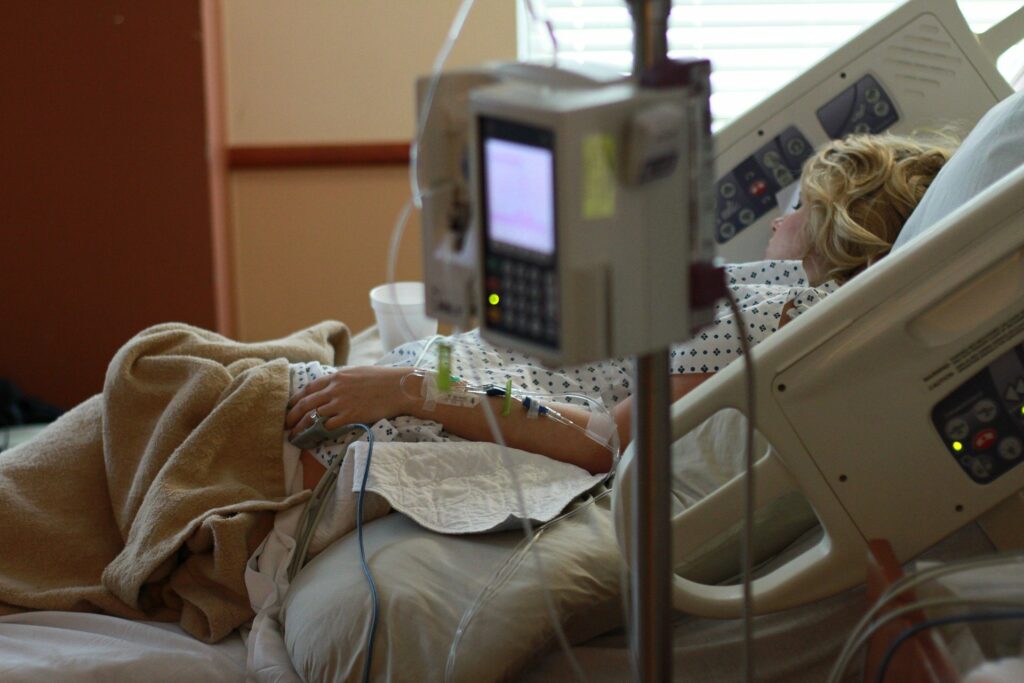
Swedish and Finnish scientists have compared the potential effects of increased and decreased estrogen levels on the severity of coronavirus disease.
Low estrogen levels may be associated with an increased risk of death due to coronavirus infection in older women, researchers from Umeå University and the University of Gothenburg in Sweden and the University of Helsinki and the University Hospital of Helsinki in Finland believe. Their study is published in the journal BMJ Open.
Men have a harder time with Covid-19
Almost from the beginning of the pandemic, it was clear that being male is one of the risk factors for Covid-19, while women, although not immune to infection, are less likely to experience adverse outcomes. So there are biological differences between the sexes in terms of exposure to a severe form of the disease. And to some extent, according to researchers, estrogen – or rather, estrogens as a subclass of steroidal sex hormones, produced for the most part by the follicular apparatus of the ovaries – is responsible for this. Estrogen, unlike testosterone, reduces the expression of important proteins, such as the membrane enzyme ACE2 and the protease TMPRSS2, which help SARS-CoV-2 penetrate the cell.
As the authors of the new work note, most patients with breast cancer – the most common cancer among women in the world – have tumors that are positive for estrogen receptors, so to avoid recurrence, they are prescribed adjuvant endocrine therapy after surgery. This results in lower estrogen levels in the body. At the same time, estrogen levels are elevated in women taking menopausal hormone therapy to relieve the symptoms of cessation of menstrual cycles.
It was the data of such Swedish patients that scientists focused on. They analyzed the opposite effects of their endocrine therapy and tested the hypothesis that elevated estrogen levels protect against death due to CoVID-19.
Between early February and mid-September 2020, coronavirus infection was detected in 49,853 Swedish women, 16,693 of whom were 50 to 80 years old. The sample included 14,685 women: 227 (2%, group one) had previously been diagnosed with breast cancer and were taking estrogen receptor-suppressing drugs; another 2,535 (17%, group two), in contrast, were prescribed hormone replacement therapy to increase estrogen levels and relieve menopausal symptoms. The control group consisted of 11,923 (81%) women: they received no treatment targeting estrogen.
“Pharmaceutical reduction of systemic estrogen levels by a factor of 2.35 increased the risk of death from Covid-19 in the first group, but after adjusting for additional factors (age, annual income, education level, and comorbidities. – Editor’s note), this association ceased to be significant. Interestingly, an increase in systemic estrogen levels reduced the likelihood of dying from coronavirus by 0.45 times, a figure that remained significant even after other factors were taken into account,” the researchers wrote.
Twenty-three women (10.1%) from the first group died during the study, 54 (2.1%) from the second group, and 546 (4.6%) from the control group. The average age of those who died was 73.2 years. It was expected to be associated with the risk of death from coronavirus infection: an additional year increased the probability by 1.15-fold. Each co-morbidity led to a 13% increase. Women with the lowest family income had nearly three times the risk of not surviving Covid-19 compared with wealthy participants.
Because the study was observational, it is not possible to determine the exact reason why estrogen affects the risk of dying from the coronavirus. Also, the researchers did not take into account data on the exact doses of medications, body weight, and unhealthy habits, and the number of women in the first group was relatively small.
However, the authors of the paper believe they were able to confirm an association between estrogen levels and the chances of recovering from SARS-CoV-2 infection. “Consequently, medications that increase estrogen levels may have a role in therapies aimed at alleviating the severity of Covid-19 in postmenopausal women and should be studied in randomized controlled trials,” they summarized.




